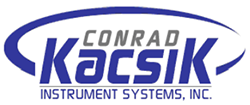In Defense of Nadcap: Understanding Its Importance and Addressing Misconceptions
Nadcap is a term that resonates with most professionals in the thermal processing industry. Whether you've been directly involved in Nadcap audits or have encountered its standards through your work, it’s likely had an impact on your career. Over the years, as a consultant, I’ve engaged in numerous discussions about Nadcap—some positive, others more critical. While it’s easy to focus on the challenges, I believe it’s essential to recognize the vital role Nadcap plays in our industry. In this article, I aim to present a compelling argument in support of Nadcap, addressing common criticisms and emphasizing its value.
History of Nadcap
To fully appreciate Nadcap, it’s important to understand its origins and mission. Nadcap (formerly NADCAP) was conceived in 1985 when it was recognized that redundant prime process audits were burdening process suppliers. The idea was to consolidate these efforts and create a more streamlined system. By 1990, the Society of Automotive Engineers (SAE) launched the Performance Review Institute (PRI) as a separate nonprofit organization to govern Nadcap. Initially focused on non-destructive testing (NDT), Nadcap quickly expanded its scope, adding welding, heat treat, materials testing laboratories, chemical processing and coatings by 1994.
As the program grew, Nadcap launched eAuditNet in 2002, a business support software that has since become integral to its operations. Today, Nadcap is a global standard with offices in Pittsburgh, Pennsylvania, Europe and Asia. It serves a variety of industries including aerospace, transportation, power generation, medical devices and nuclear energy. Through its continued growth and evolution, Nadcap has established itself as a cornerstone of quality assurance in critical industries.
Addressing Common Criticisms
“It operates as a monopoly.”
Criticism of Nadcap often revolves around the perception that it operates as a monopoly. It’s true that PRI/Nadcap holds a unique position in the industry, but this was by design, not by chance. The intent was to centralize requirements and accreditation processes to achieve consistency in processing and quality systems. Without this centralized authority, the industry would face a fragmented landscape with conflicting standards, making it nearly impossible to maintain the high level of quality and consistency that Nadcap ensures.
“Suppliers are designed to fail their first audit.”
Another common argument against Nadcap is the belief that suppliers are destined to fail their first audit. Some in the industry have claimed that failing the initial Nadcap audit was almost guaranteed, suggesting that auditors are predisposed to finding something wrong.
While it’s true that the Nadcap audit process is rigorous, the notion that failure is inevitable is simply not accurate. Nadcap’s operating procedures are transparent and publicly available. Nowhere in these procedures is there a mandate to fail first-time audits. In fact, many suppliers successfully achieve Nadcap accreditation on their first attempt, including those in complex areas like heat treating. The key to success lies in thorough preparation and understanding of the requirements.
In fact, if you need help passing your first audit, Conrad Kacsik offers consulting services that will put you in the position to do so. You can learn more by contacting us.
It’s also important to address the misconception that auditors always find something wrong because they “have to.” While auditors are thorough, they are not infallible, and there are instances where audits result in zero findings. Auditors, like the rest of us, are human. They aim to ensure that standards are met, but they do not operate under a directive to create failures where none exist.
What I’ve Seen Working with Nadcap
From my experience working with PRI, Nadcap, and the eQuaLearn team, I’ve seen firsthand the dedication and effort that goes into maintaining and improving the program. Both primes and suppliers have a voice in shaping the checklist requirements and handbooks, ensuring that the standards reflect the needs and realities of the industry. The process of organizing prime requirements, industry standards, and expert opinions is no small feat. Yet, PRI has managed to create a system that is both robust and adaptable, guiding the industry toward higher standards of quality.
Attending the annual Nadcap conference in Pennsylvania provides a glimpse into the complexity and scale of PRI’s work. It’s an opportunity for anyone involved in the process to voice their concerns and questions, which are addressed by PRI staff either immediately or through follow-up. This open line of communication, coupled with the availability of PRI staff engineers via email, demonstrates PRI’s commitment to transparency and continuous improvement.
If you have true concerns, I would highly recommend that you attend and see PRI at work for yourself.








